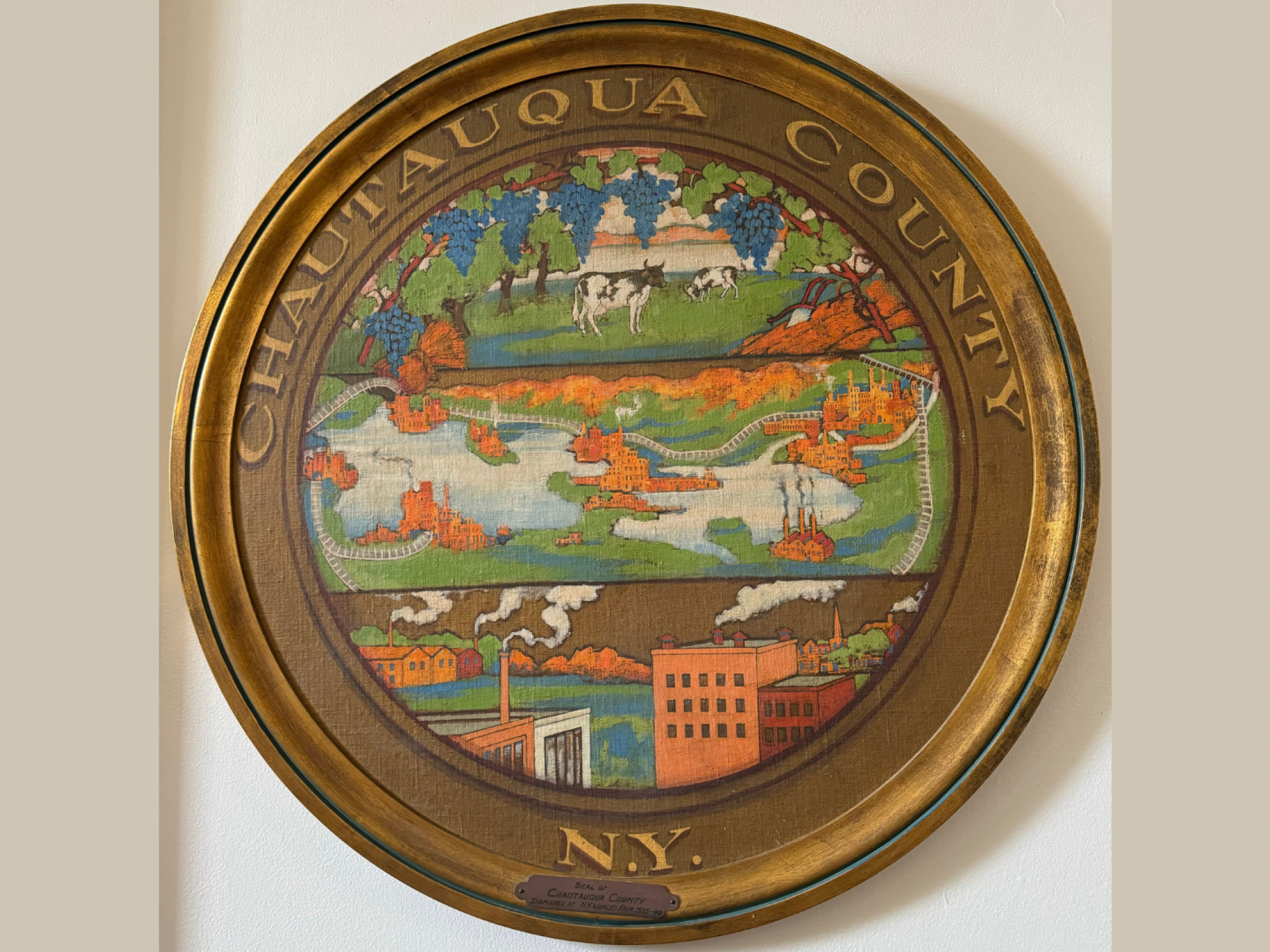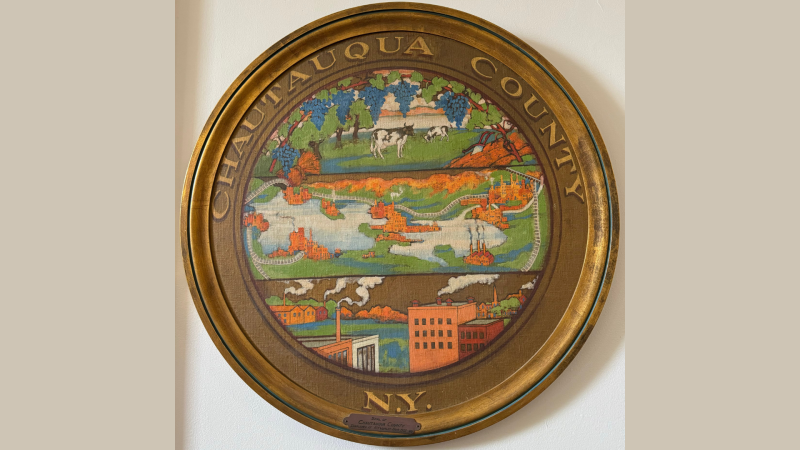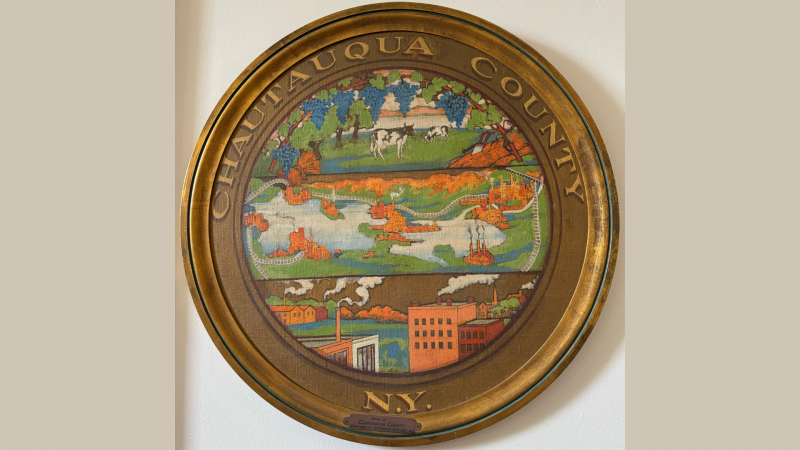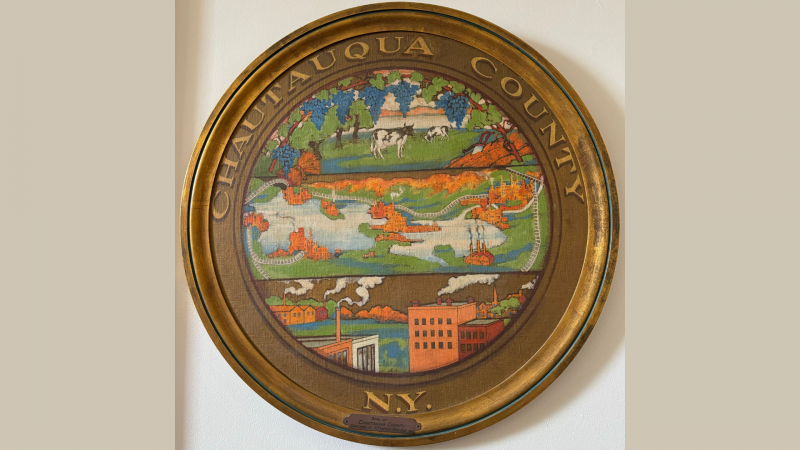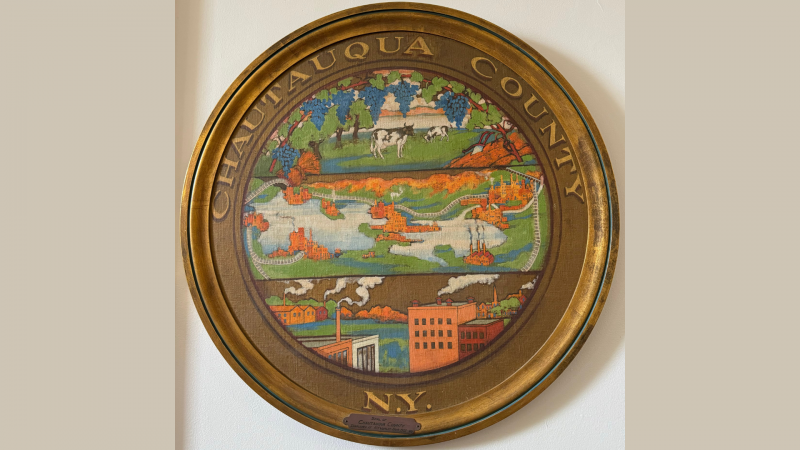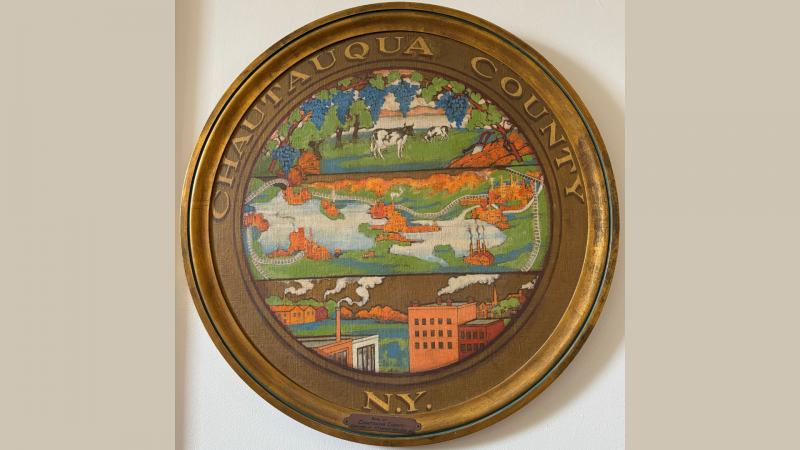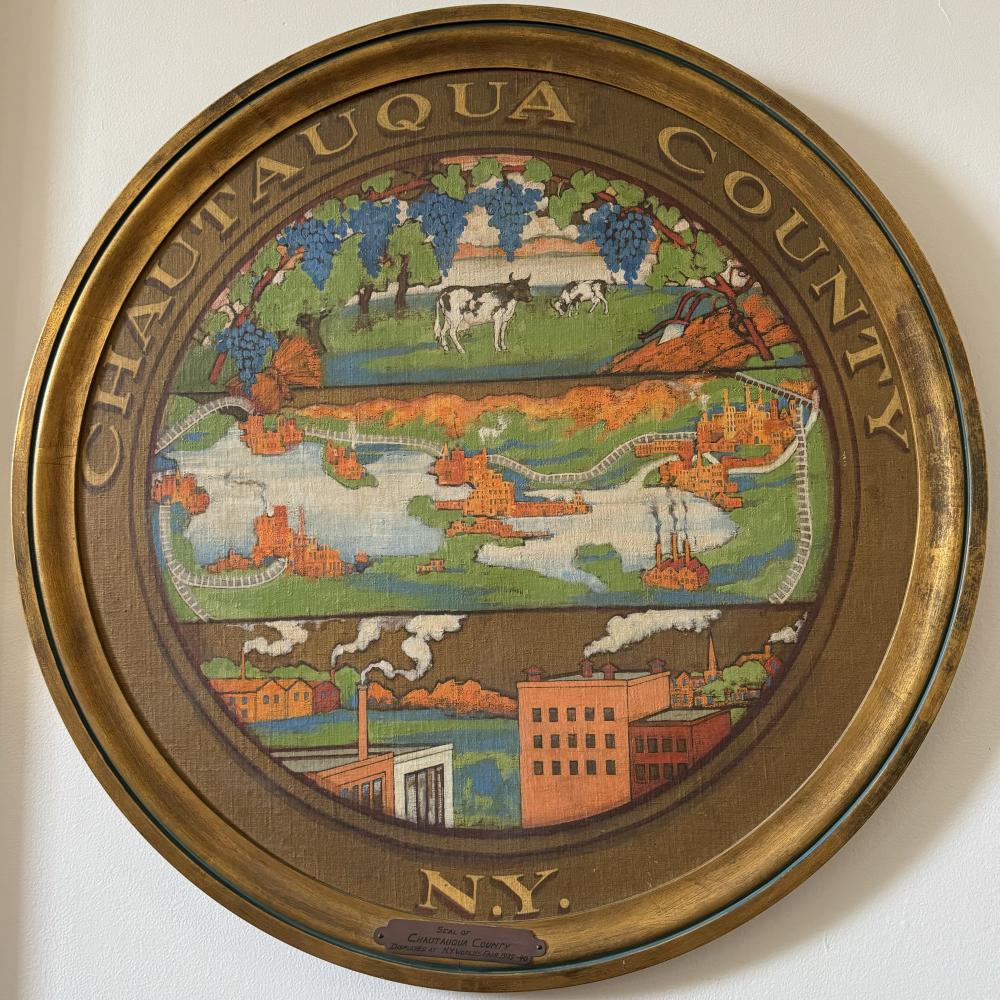
(Seal of Chautauqua County displayed at the New York World's Fair 1939-1940.)
Research by Norman Carlson, Chautauqua County Historian
Chautauqua County’s history is rich with fascinating events that have shaped the region. From record-breaking cold spells to the launch of key community organizations, this week in January has witnessed some significant moments.
January 5:
- 1904: A record-breaking cold snap hit Busti with temperatures plunging to a bone-chilling minus 40 degrees Fahrenheit, one of the coldest readings in local history.
- 1970: The last regular passenger train passed through Jamestown, marking the end of an era for rail travel in the region.
- 1987: The demolition of the St. Elmo Hotel at Chautauqua Institution began, a significant change for the area’s historic landscape.
- 2007: Darl Redlecki of Sherman set a remarkable record by putting out 1,200 maple taps, an early start to the sugaring season that year.
January 6:
- 1838: The Indian war panic spread across Ellington and neighboring towns, leading to widespread alarm. It turned out to be one of the largest comedic missteps in the county's history.
- 1908: Baker Park in Jamestown was named in honor of its donor, Henry Baker.
- 1913: A rabies quarantine was enacted in Jamestown, with all dogs being muzzled and placed under surveillance following reported cases.
- 1932: The Apple Inn at Bonita, a popular local eatery, officially opened its doors for the first time.
- 1939: Groundbreaking took place for Cassadaga Valley Central School, a key moment in the region’s educational development.
- 1997: The Sandpiper Restaurant at the Jamestown Airport opened, offering travelers and locals a place to dine with a view.
January 7:
- 1817: The first newspaper in Chautauqua County, the Chautauqua Gazette, was published in Fredonia, marking a key development in the area’s communication history.
- 1868: Clara Barton, renowned for her pioneering work as a nurse, visited Sherman, leaving her mark on local history.
- 1901: The Primitive Methodist Church on Allen Street in Jamestown was dedicated. Although the church would soon close, it represented an important part of the local religious community.
- 1947: The Jamestown Girls' Club opened, offering a vital community resource for local young women.
January 8:
- 1866: An explosion at the Jamestown Gas Works on East First Street blew the roof off the building, highlighting the risks involved in the production of street lighting gas from coal.
January 9:
- 1789: The Iroquois Six Nations deeded the Erie Triangle to Pennsylvania, a significant moment in the region’s early history.
- 1870: The Jamestown Cane Seat Chair Company was organized, beginning what would become a notable local manufacturing business.
- 1874: Sherman Grange #36, the third such organization in the county, was established, marking an important development in the area’s agricultural community.
- 1968: The Findley Lake Golden Age Society held its first meeting, attended by just 10 members, a small but dedicated start for the organization.
- 1998: Area-wide floods caused significant damage across Chautauqua County, while a tragic rape and suicide occurred at Bosco Trailer Court in Busti, both of which left lasting impacts on the community.
January 10:
- 1854: The first railroad fatality in Chautauqua County occurred when a two-year-old child was killed in Silver Creek.
- 1862: The first Jamestown-made stationary steam engine was completed, marking a key technological advancement for the growing industrial community.
- 1881: The new Sinclairville school was dedicated at a cost of $6,000, providing a better educational facility for local children.
- 1889: A football team was formed at Jamestown Business College, signaling the start of organized football in the area.
- 1908: A new Erie Railroad route between Lakewood and Sand Hill (Niobe) opened, with a double track system improving regional transport.
- 1939: A public dinner at the Hotel Jamestown helped launch the Boys Club, furthering youth development efforts in the community.
January 11:
- 1793: William Bemus, later to settle Bemus Point, received a revelation at the age of 30 that he would live forever. He passed away in 1830, but this early belief is a fascinating footnote in the county’s spiritual history.
- 1869: A contract was let for the County Poorhouse building, widely considered one of the most beautiful buildings in the county.
- 1899: The Brooks Memorial Library in Dunkirk opened its doors, providing an important educational and cultural resource to the community.
- 1909: The Federation of Men's Clubs, a coalition of church organizations, was formed in Jamestown, reflecting the area’s active religious community.
- 1939: The Falconer Rotary Club was chartered, adding to the region’s network of service organizations.
- 1939: A Ripley’s Believe It or Not feature in national newspapers showcased an apple inside an apple grown by Alton Whiting from Jamestown.
- 1954: The first "Operation Big Burn" for Christmas trees in Jamestown took place, a community event sponsored by the Boy Scouts for many years.
This week’s historical events highlight the fascinating and diverse developments that have shaped Chautauqua County. From technological innovations to pivotal moments in local culture, these events offer a glimpse into the area’s rich history.

